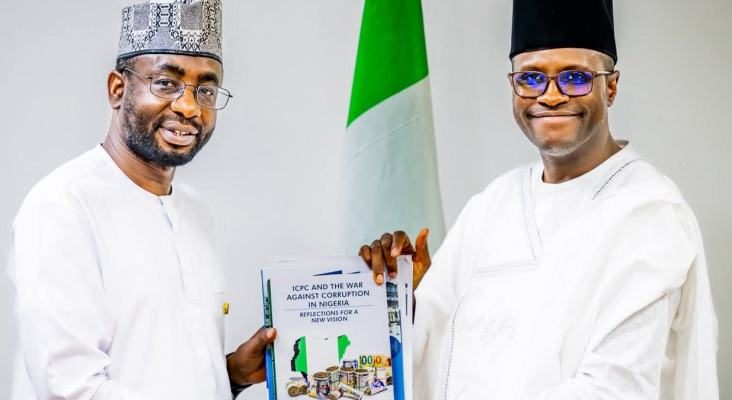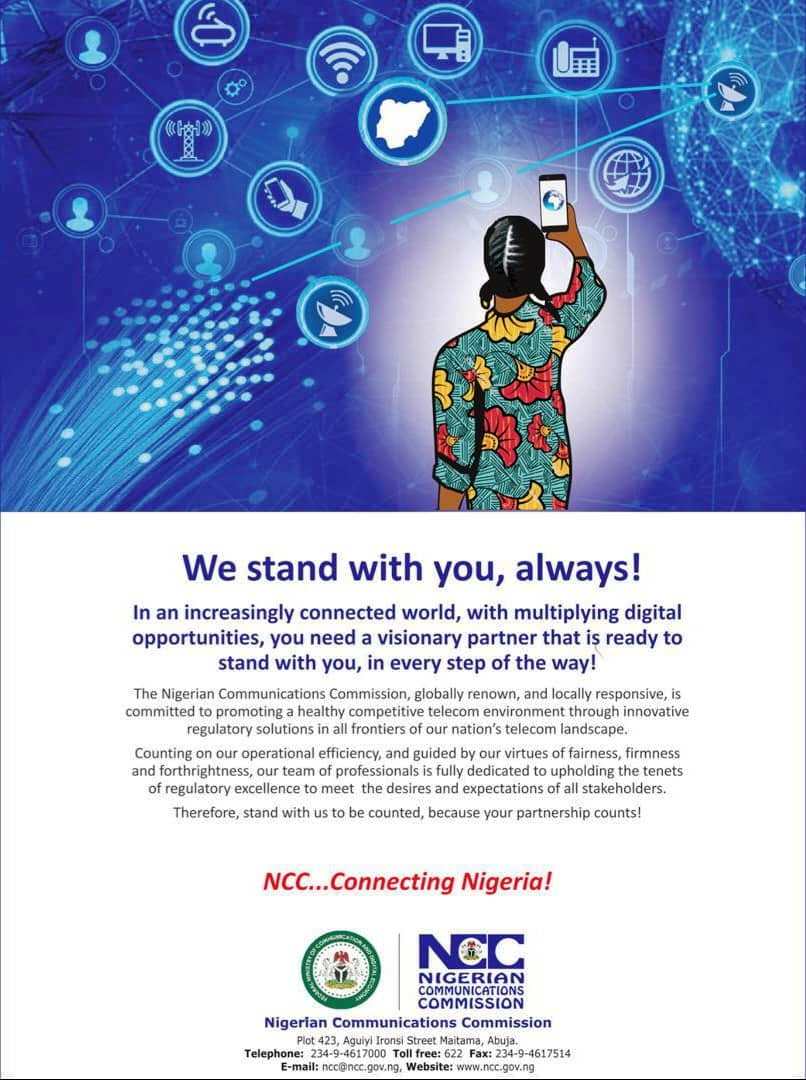
NITDA, ICPC Unite to Strengthen Digital Governance and Anti-Corruption Efforts
The National Information Technology Development Agency (NITDA) and the Independent Corrupt Practices and Other Related Offences Commission (ICPC) have launched a Joint Task Force on Digital Governance and Anti-Corruption. The initiative aims to combat corruption risks in government IT projects. It will also strengthen compliance with the IT Project Clearance mandate, and ensure that digital technology enhances public service delivery.
RELATED: Digital Bridge Institute partners with ICPC to enhance transparency and anti-corruption capacity building
The announcement was made in Abuja during a courtesy visit by NITDA Director General, Kashifu Inuwa Abdullahi, to ICPC Chairman, Dr. Musa Adamu Aliyu. The collaboration aligns with President Bola Ahmed Tinubu’s Renewed Hope Agenda and his vision of building a $1 trillion economy driven by digital transformation, transparency, and ease of doing business.
Addressing the Root of IT Project Failures
For over two decades, Nigeria has suffered massive financial losses due to failed and abandoned IT projects. Many Federal Public Institutions (FPIs) have embarked on technology procurements without NITDA clearance. All of these have resulted in duplicated efforts, inflated costs, and substandard solutions.
Some of these projects, valued in billions of naira, have become vehicles for corruption. They are often plagued by contract splitting, unregistered contractors, and weak enforcement of due process. This trend has undermined public trust in the government’s ability to digitize services and enhance transparency.
The Role of IT Project Clearance and Joint Enforcement
NITDA’s IT Project Clearance Policy was created to ensure all government IT investments are vetted for interoperability. Most importantly, to ensure alignment with national standards, and value-for-money delivery. However, non-compliance remains a persistent challenge, prompting ICPC to classify it as a corruption risk that demands enforcement.
The new Joint Task Force will combine NITDA’s technical oversight with ICPC’s investigative powers to ensure:
- Mandatory Enforcement: All FPIs must obtain IT Project Clearance before initiating technology projects, with ICPC providing enforcement where violations occur.
- Monitoring and Sanctioning: Both agencies will jointly monitor IT project implementation and sanction defaulters.
- Integration of Tools: NITDA’s monitoring instruments will be integrated into ICPC frameworks like the System Study & Review, Ethics & Integrity Scorecard, and other anti-corruption mechanisms.
Leaders Emphasize Accountability and Collaboration
NITDA DG Kashifu Inuwa Abdullahi emphasized that IT Project Clearance serves as a national safeguard to ensure synergy across government digital investments.
“This regulation ensures that IT projects are properly conceptualized and executed in line with global best practices, avoiding duplication and ensuring efficient use of resources,” he stated.
On his part, ICPC Chairman Dr. Musa Adamu Aliyu reaffirmed the Commission’s commitment to supporting NITDA’s mission. He noted that corruption in IT procurement erodes public trust and impedes economic growth.
“We are ready to use our statutory powers to ensure accountability and integrity in all government technology projects,” he said.
Driving a Corruption-Free Digital Future for Nigeria
The Joint Task Force represents a bold step toward institutionalizing transparency and accountability in Nigeria’s digital governance framework. The partnership is expected to serve as a model for inter-agency cooperation, ensuring that digital transformation delivers real value to citizens and supports Nigeria’s march toward a modern, transparent, and competitive economy.

































